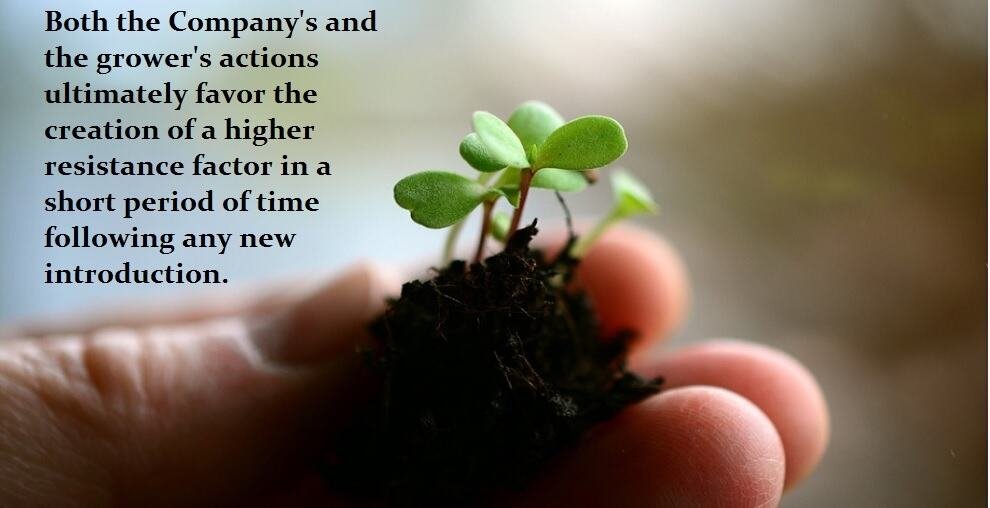It’s time for companies to take responsibility for product stewardship to save the environment
Chemical Pesticides
All said and done, Chemical pesticide usage while killing the targeted pest will also disrupt the ecosystem. When a company introduces a new product for pest control, product stewardship is critical in order to save the environment and the efficacy of the product itself. The application window, dosage, and method of usage are all critical. In general, all living beings in nature have an inbuilt ability to resist an external threat to their survival.
Also Read: Patent for insecticidal combination to control the entire sucking pest complex
Thereby, insect resistance in agriculture is not a new phenomenon. After pesticide application, resistance develops, even if a fraction of the Insect population exposed to pesticides, survives, As the survivors can procreate a tiny fraction of their offsprings with an inbuilt higher resistance than the inherent resistance of the survivors’ parents.
So, while insect resistance is not instant, requiring the transfer of traits from generation to generation. The time lag for such a Biological process gets reduced based on the prevalent conducive ecosystem. Unlike in the West, most pests in our Indian tropical conditions have multiple and overlapping generations of the pest in a single season and have a year-round survival opportunity due to the availability of alternate hosts. This will result in a higher resistance factor.
Impact
As a result of the increased resistance factor, the time required to build resistance is reduced. One of the best ways to prevent or delay resistance buildup in insects is to avoid exposing the insect to chemicals with a similar mode of action on a regular basis.
Accordingly, you must alternate chemicals with Contact Acton, Respiratory inhibitors, Stomach poisons, Nerve poisons, and so on. In the absence of Product Stewardship, Field Executives may be tempted to recommend multiple rounds of the product ignoring the Pest stage to increase their sales volumes. On the other hand, If the product is found to be effective in controlling the pest, the farmer may be tempted to use it repeatedly, ignoring the development of resistance.
So, both the Company’s and the grower’s actions ultimately favor the creation of a higher resistance factor in a short period of time following any new introduction.
If a company wants to ensure the long-term survival of a new product, it must enforce Product Stewardship. Strictly through training of both the grower and the executives.
In any Pest Management practice, only an integrated approach can help reduce insect pest resistance, improve pest control, reduce the impact on the environment, and extend the life of new molecules introduced in the market. The use of chemical pesticides for curative action must be reduced for a safer environment free of soil, water, and air pollution.
Also Read: Nano urea can increase crop yields and save up to 50% of nitrogen & soil health
Solutions
Instead of monocropping, a mixed cropping approach should be used. Trap crops must be part of farming, planted on all bunds and along the boundaries. Prophylactic sprays with completely bio-degradable botanical products with multiple modes of action should be encouraged and used instead of curative chemical sprays.
One such product is an Aza-based 1 percent Neem formulation. These products have a variety of modes of action.
- • They act as a repellent, preventing killing while ensuring no crop damage.
- • They have an ovicidal effect, preventing insect eggs from normal hatching.
- • They act as an oviposition deterrent by interfering with egg laying by adults.
- • They function as an IGR (Insect Growth Regulator) on various stages of insects, resulting in deformed adults.
- Botanicals do not pollute the air, soil, or water bodies because they are biodegradable.
For that reason, it’s time for companies to take responsibility for product stewardship, conduct effective training of growers and field executives, develop integrated programs for various long-duration crops, using botanicals as prophylactic sprays with a positive impact on production costs. Maintain a pollution-free ecosystem, prevent insect resistance, and provide chemical-free agricultural produce to our society.
Author: Parthasarathy. V.T
PM Agri Science Pvt Ltd



















Add Comment